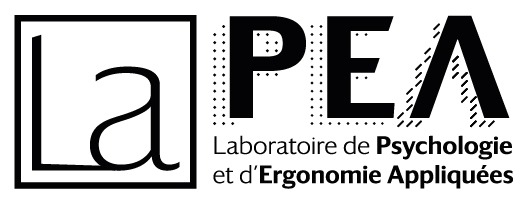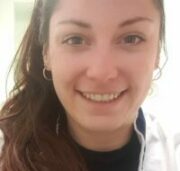https://www.linkedin.com/in/clothilde-rosier-3b977a14b
https://www.researchgate.net/profile/Clothilde-Rosier
Thèmes de recherche
Non-evolutive acquired brain injuries such as traumatic brain injury, stroke, cerebral anoxia or encephalitis, affect people from cognitive, behavioural and sensorimotor damage. These disorders should hind their driving abilities, increasing crash risk by more than twice. Consequently, since 2005, legislation has requested that people who suffer from brain injury visit a registered doctor to keep their driving license valid. Then, the 2022 decree dated march 28th requires that registered doctors take into account elements of patients’ multiprofessional assessment. In 2016, the French Health Authority (HAS) certified a recommendation list written by four different care organizations. Some items recommend a cognitive assessment with a neuropsychologist, a sensorimotor assessment with an occupational therapist, and an on-road assessment with a rehabilitation practitioner and a driving school instructor. Practitioners in rehabilitation centres are used to applying the main recommendations despite the lack of consensus about the methods and tools used. Therefore, this study aims to identify the most relevant methods and tools for driving skill assessments to guide professional practices. The first multicentre study will investigate the sensibility and specificity of both neuropsychological tests and an on-road evaluation table, through correlation and concordance analysis. The second study uses an action research approach in a bid to improve field practices on the bases of experiences shared by professionals during focus groups. Thus, practitioners have already codesigned a protocol assessment (used in the first study) that they will improve several times until optimal practice. Third, a longitudinal study will find out the benefits of these assessments and of the educational support on driving habits, behaviour and on car crash risk.
Mots-clés : brain injury, driving assessment, road safety
Responsabilités
- Animatrice groupe Resaccel (Réseau régional de soins et d’accompagnement des personnes cérébrolésées en Auvergne-Rhône-Alpes)
- Coordonnatrice du programme PERAC (programme d’évaluation pluriprofessionnel de la conduite chez les cérébrolésés) au Centre Médical de l’Argentière.
Publications
Rosier, C., Colliot, P. et Gabaude, C. (2023). Conduire avec des troubles cognitifs, est-ce possible ? Place du bilan neuropsychologique dans l’évaluation de l’aptitude à la conduite automobile. Neurologies.
Rosier, C., Tabet, S., Gauthier, S., Leblanc, J. et De Guise, E. (2019). Normalisation franco-québécoise d’une batterie d’évaluation des compétences de lecture chez l’adulte de plus de 16 ans (ECLA 16+). Neuropsychologie clinique et appliquée, 3, 32-63
Communications
Rosier, C. (2023). Une recherche-action sur la reprise de la conduite automobile après une lésion cérébrale acquise. EPIQUE 2023, 5-7 juillet, Paris, France. (Prix du meilleur poster)
Rosier, C. (2022). Apport du bilan neuropsychologique pour l’évaluation des capacités de conduite automobile. 24es rencontres de neurologies, Session Rééducation, 12-14 décembre, Paris, France.
Rosier, C. (2022). Contribution à l’évaluation pluriprofessionnelle de l’aptitude à la conduite automobile après une lésion cérébrale acquise non évolutive. Labmeeting EMC, 9 décembre, Université Lyon 2, Bron, France.
Enseignements
Université Lyon 2 :
- TD Neuropsychologie L1
- CM Cognition Appliquée M2

